Our Team
Core Team Members
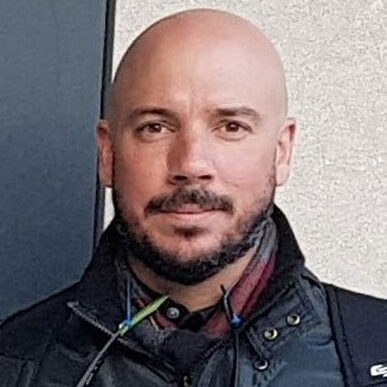
Dr. Pablo A. Méndez-Lázaro
Lead Principal Investigator
University of Puerto Rico, Medical Sciences Campus, Graduate School of Public Health
CCAN Focus
Academia & Research
Description
Dr. Pablo Méndez-Lázaro works in the Department of Environmental Health at the Graduate School of Public Health at the University of Puerto Rico. He leads science on Climate Change, Equitable Climate Adaptation, and Public Health. Trained as a geographer, Pablo expanded his transdisciplinary background by pursuing a master's degree in Marine Sciences, a Ph.D. in Environmental Sciences, and a three-year Postdoctoral Fellowship in Climate Change and Extreme Weather Events at the University of South Florida-College of Marine Science and the San Juan Bay Estuary Program in Puerto Rico. He is the Chapter Lead for the ongoing Fifth National Climate Assessment (NCA5) for the U.S. Caribbean. Currently, Pablo is the Lead Principal Investigator at NOAA CAP/RISA: Caribbean Climate Adaptation Network (CCAN).
Contact: pablo.mendez1@upr.edu
Core Team Members
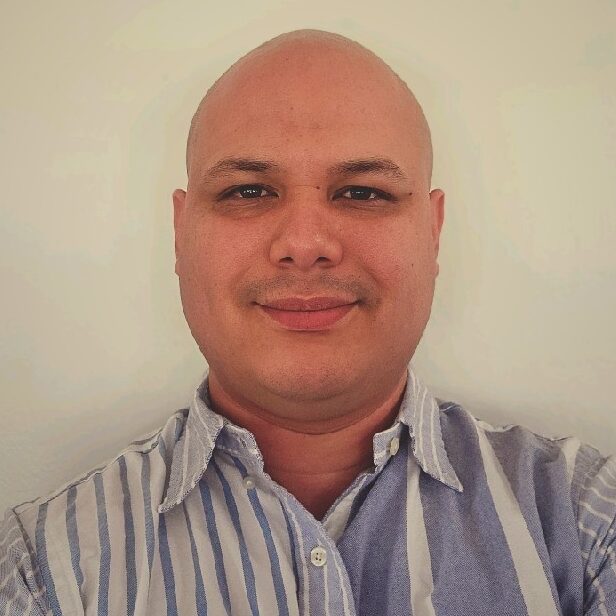
Manuel Heredia Morales
Coordinator
University of Puerto Rico, Medical Sciences Campus, Graduate School of Public Health
CCAN Focus
Academia & Research
Description
Manuel is a dedicated and competent professional with a solid background in public health and gerontology, along with a passion for community development and health promotion. He holds a Master's in Public Health from the Graduate School of Public Health at the University of Puerto Rico Medical Sciences Campus, with practical experience and specialized certifications, reflecting a commitment to continuous learning and professional growth. With extensive experience in community settings, Manuel has demonstrated exceptional competence in health promotion, project development, and implementation.
As a Project Coordinator at the Primary Health Services and Socioeconomic Development Corporation El Otoao, Manuel led the development and implementation of a Community Health Promoters project aimed at underserved communities in rural areas. He ensured effective coordination of project staff, implemented intervention plans, and facilitated educational workshops, thus making a tangible contribution to community well-being.
Additionally, he has actively participated in advisory roles, such as Community Technician at the Puerto Rico Community Foundation, where he provided invaluable guidance in community preparedness initiatives and proposal development processes. Manuel is motivated by a deep commitment to fostering healthier communities through collaborative efforts and innovative approaches to problem-solving.
Contact: manuel.heredia@upr.edu
Core Team Members
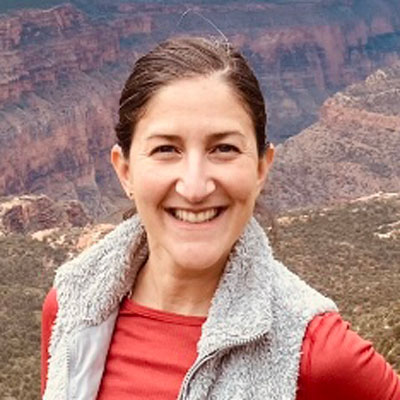
Dr. Tischa Muñoz-Erickson
Co-PI
USDA Forest Service, International Institute of Tropical Forestry
CCAN Focus
Academia & Research
Description
Dr. Tischa Muñoz-Erickson is a Research Social Scientist at the International Institute of Tropical Forestry (IITF) of the USDA Forest Service in Río Piedras, Puerto Rico. She currently co-leads the IITF's International Urban Field Station, the Urban Long-Term Research Area of San Juan (ULTRA), and the NSF-funded Convergence Research Project SETS. She has served as Co-PI in several research programs on sustainability and resilience, including the NSF Urban Resilience to Extreme Weather Events Sustainability Research Network (UREx SRN), the Smart Coastal Communities Resilience (SCC RC2), and USAID's Climate Resilience program in Santo Domingo, Dominican Republic. She holds a Master's in Environmental Science and Policy from Northern Arizona University and a Ph.D. in Sustainability from Arizona State University.
Muñoz-Erickson's research currently focuses on exploring governance modes, collaborative networks, transformative capabilities, anticipatory planning practices, and inclusive knowledge systems to advance sustainable, just, and resilient climate solutions for urban areas. As part of her transdisciplinary research, she is deeply involved in knowledge co-production efforts that bring together diverse communities and stakeholders to build knowledge and actions addressing interconnected social, ecological, and technological sustainability challenges.
She has co-authored two books, "Designing Knowledge and Resilient Urban Futures," and has published in interdisciplinary journals such as "Ecology and Society," "Environmental Science and Policy," "Current Opinion in Environmental Sustainability," "Society and Natural Resources," "Landscape and Urban Planning," among others. She is a Co-Author for the U.S. National Climate Assessment 5th Assessment and a Contributing Author for the Intergovernmental Panel on Climate Change (IPCC). She is also a member of the Urban Knowledge-Action Network (UKAN) and the Ecosystem Change and Society Program, two research networks supported by Future Earth for global sustainability science.
Contact: tischa.a.munoz-erickson@usda.gov
Core Team Members
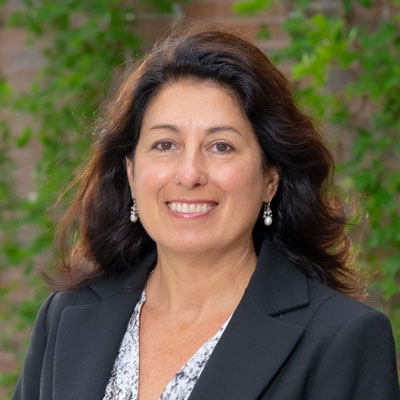
Dr. Mimi Sheller
Co-PI
The Global School, Worcester Polytechnic Institute
CCAN Focus
Academia & Research
Description
Dr. Mimi Sheller is the Inaugural Dean of The Global School at Worcester Polytechnic Institute in Massachusetts. Previously, she was a Professor of Sociology, Chair of the Sociology Department, and Founding Director of the Mobilities Research and Policy Center at Drexel University in Philadelphia. She holds an A.B. in History and Literature from Harvard University, as well as a Master's and Ph.D. in Sociology from the New School for Social Research.
With over 25 years of research in Caribbean cultural history, Dr. Sheller has extensively published in the fields of mobilities research, Caribbean and Haitian studies, mobile media, public space, climate justice, and infrastructure. Among her books are Island Futures: Caribbean Survival in the Anthropocene (Duke University Press, 2020); Mobility Justice (Verso, 2018); Aluminum Dreams (MIT Press, 2014); Citizenship from Below (Duke University Press, 2012); Consuming the Caribbean (Routledge, 2003); and Democracy After Slavery (University Press of Florida, 2001).
Her partner is an artist and woodcarver who enjoys cooking and mushroom hunting. They have two daughters. Dr. Sheller enjoys reading, traveling, biking, hiking, swimming, kayaking in the sea, and sailing around the coastal islands of Maine. She's not a good cook, but she loves Caribbean food! She's also not a good dancer, but she loves Caribbean music!
Contact: msheller@wpi.edu
Core Team Members

Dr. Patricia Chardón Maldonado
Co-PI
CARICOOS
CCAN Focus
Academia & Research
Description
Dr. Patricia Chardón-Maldonado is a coastal and civil engineer with 6 years of experience in coastal morphodynamics, oceanographic and meteorological modeling, and the design of coastal risk mitigation alternatives. Chardón-Maldonado earned her Bachelor's in Civil Engineering and Master's in Environmental and Water Resources Engineering from the University of Puerto Rico at Mayagüez, and a Ph.D. in Coastal Engineering from the University of Delaware.
Dr. Chardón-Maldonado currently serves as the Technical and Deputy Director of the Caribbean Coastal Ocean Observing System (CARICOOS; https://www.caricoos.org) and co-leads the design and implementation of CARICOOS' observation and numerical modeling components. She has participated in multiple research projects measuring, analyzing, and modeling climate, weather, coastal characteristics/processes, and their impacts on socio-ecological systems, infrastructure, and communities in the U.S. Caribbean region.
Chardón-Maldonado is enthusiastic about promoting a consistent, well-integrated, and sustainable approach to coastal risk management in Puerto Rico, as well as maintaining a healthy, resilient, and sustainable ocean and coastal resources for the benefit of present and future generations. She is addicted to the ocean and the adrenaline it brings; it's her place for swimming, paddleboarding, diving, sailing, and surfing.
Contact: patricia.chardon@caricoos.org
Core Team Members
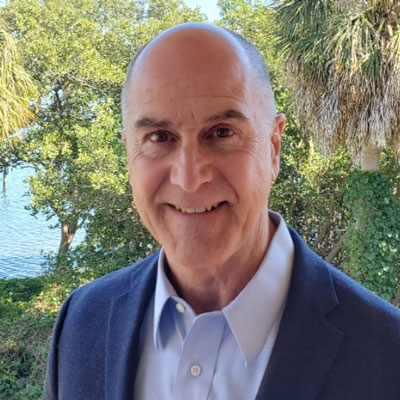
Dr. Frank Muller-Karger
Co-PI
University of South Florida
CCAN Focus
Academia & Research
Description
Dr. Frank E. Müller-Karger is a Professor at the College of Marine Science at the University of South Florida (USA). As a biological oceanographer, Dr. Müller-Karger's research focuses on how marine ecosystems change over time. He assesses the links between water quality, primary production, and biodiversity in coastal marine environments and how these may be related to climate change and human activities.
Müller-Karger serves as co-leader of the United States and international Marine Biodiversity Observation Network (MBON), the Marine Life 2030 program supported by the UN Decade of Ocean Science for Sustainable Development, and the Climate Indicators Working Group of NOAA/Sanctuaries. He has published over 340 peer-reviewed articles. He is the recipient of the 2021 William T. Pecora Award (Individual); he is a member of the AAAS; and has been part of the United States Ocean Policy Commission.
Contact: carib@usf.edu
Core Team Members

Dr. Jorge González-Cruz
Co-PI
University at Albany's College of Atmospheric and Environmental Sciences
CCAN Focus
Academia & Research
Description
Professor González-Cruz is a SUNY Empire Innovation Professor at the University at Albany's College of Atmospheric and Environmental Sciences, the Chief Scientist of the Urban-Coastal Environmental Research Group (CUERG), and a Presidential Professor of Mechanical Engineering at the City College of New York (CCNY). He earned his Ph.D. (1994) and Bachelor's (1988) in Mechanical Engineering from the Georgia Institute of Technology and the University of Puerto Rico-Mayagüez, respectively. His teaching and research focus on urban energy sustainability and resilience, urban climate and meteorology, and regional climate modeling and analysis.
Professor González-Cruz holds several patents in solar energy equipment, solar desalination systems, aerosol detection, and energy forecasting for buildings. He was recognized as an outstanding young researcher by the National Science Foundation with the prestigious CAREER Award. He has authored or co-authored over 100 peer-reviewed publications, presented hundreds of papers at conferences, and his research has attracted over $50 million in external funding. He is a Fellow Member of the American Society of Mechanical Engineers (ASME) and former Vice Chair of the Urban Environment Board of the American Meteorological Society.
In 2015, he was appointed by the Mayor of New York City as a Member of the Climate Change Panel for the City of New York, and more recently, he was appointed as a Senior Scientist at the Brookhaven National Laboratory and a Member of the Scientific Advisory Committee of the U.S. Department of Energy's Office of Science. He is a co-editor of the ASME Handbook of Integrated Sustainable Building Equipment and Systems and in 2019 was appointed as the Founding Editor of the newest ASME Journal of Engineering for Sustainable Buildings and Cities.
Contact: jgonzalez-cruz@albany.edu
Core Team Members

Dr. Stephen Hughes
Co-PI
University of Puerto Rico, Mayagüez Campus
CCAN Focus
Academia & Research
Description
Dr. Stephen Hughes is a Professor in the Department of Geology at the University of Puerto Rico in Mayagüez (UPRM). He obtained his Bachelor's degree in Earth Sciences in 2009 and his Ph.D. in 2014 from the University of North Carolina at Chapel Hill and North Carolina State University. At UPRM, he teaches courses in Structural Geology, Geomorphology, and Field Geology, in addition to conducting research primarily related to tropical landslides and landscape evolution. His projects have been sponsored by groups such as the NSF, the Science, Technology, and Research Trust of Puerto Rico, USGS, USDA NRCS, and NOAA. He also collaborates on landslide-focused initiatives with colleagues from mainland academic institutions and involves students at all levels in research and outreach. Hughes is the principal investigator of the Storm-induced Landslide Impact on Environment and Society in Puerto Rico (SLIDES-PR) initiative.
Contact: kenneth.hughes@upr.edu
Core Team Members
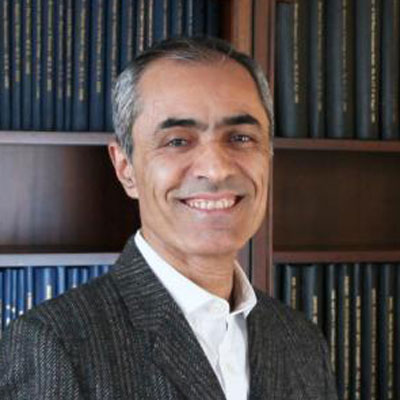
Dr. Masoud Ghandehari
Co-PI
New York University
CCAN Focus
Academia & Research
Description
Masoud Ghandehari is a professor at the Civil and Urban Engineering Department of the NYU Tandon School of Engineering and an associate professor at the Center for Urban Science and Progress at NYU. His research focus is on urban systems engineering and the application of advanced instrumentation and data analysis aimed at aging, health, and performance of infrastructure systems. Through sensor application and modeling, he works on methodologies that generate data on the interaction of physical, natural, and human systems in cities. His research in optical spectroscopy, sensors, imaging, and data analysis has led to the development of applications and technologies suitable for diverse environments and multiple scales, from molecular to urban landscapes. Professor Ghandehari is the author of "Phenomenology and Optical Applications: Health Monitoring for Infrastructure Materials and the Environment, 2018," a founding researcher of the New York State Resilience Institute for Extreme Climate Events, and founder of Chromosense LLC, supported by the National Institutes of Health for environmental sensor innovation.
Contact: mg3081@nyu.edu
Core Team Members

Dr. Seth Tuler
Co-PI
Worcester Polytechnic Institute
CCAN Focus
Academia & Research
Description
Seth has been part of the Division of Interdisciplinary and Global Studies since 2002, serving as a professor, advisor, and co-director of project centers. He is the co-director of the Boston Project Center and was the co-director of the Bangkok Project Center from 2011 to 2018. He enjoys exposing students to contemporary issues in environmental and public health policy formulation, challenging them to apply emerging research ideas to practical applications. He loves sharing his curiosity with students about how people are affected by different technological and natural systems.
The desire to link research and practice has been a central part of Seth's work since he earned his Ph.D. in Environmental Science and Policy from Clark University in 1996. Seth's research interests have focused on risk governance, public participation, long-term management of contaminated sites, and the development of tools to characterize human impacts and vulnerabilities to risk events. He has conducted research primarily with colleagues from the Institute for Social and Environmental Research, in a wide range of policy areas, focusing more recently on climate change adaptation planning, cleanup of sites in the U.S. nuclear weapons complex, and nuclear waste management. A common thread throughout his work has been empowering communities to participate more effectively in risk management.
Seth was a member of the Federal Advisory Committee on Energy-Related Epidemiologic Research, which provided guidance to the Centers for Disease Control and Prevention on health studies derived from programs in the U.S. nuclear weapons complex, and chaired its Community Affairs Subcommittee for 2 years. The role of this subcommittee was to bring the voices of community residents into deliberations on health study designs and public health responses to contamination from nuclear weapons facilities. He also served on the National Academies Committee on Nuclear Fuel Transportation and High-Level Radioactive Waste, the Standing Committee on Chemical Demilitarization, and the Committee on Alternatives for the Demilitarization of Conventional Munitions.
Contact: stuler@wpi.edu
Core Team Members

Dr. Carlos Ramos-Scharron
Co-PI
University of Texas at Austin
CCAN Focus
Academia & Research
Description
Carlos, a native of Puerto Rico, earned his Bachelor's degree in Geology from the University of Puerto Rico-Mayagüez in 1993. He completed his Ph.D. in Watershed Sciences at Colorado State University in 2004. In 2013, Carlos joined the faculty of the Department of Geography and the Environment and the Lozano Long Institute of Latin American Studies at the University of Texas at Austin. His research areas include watershed sciences, hydrology, and applied geomorphology, with a focus on the Insular Caribbean and Latin America. His work has a strong environmental component, addressing how human modification of landscapes for urbanization, agricultural production, or recreation affects their hydrological behavior, resulting in accelerated soil erosion, degraded water quality, and impoverished habitats like coral reefs.
He has served as a principal investigator and collaborator on several projects funded by NOAA, NASA, NSF, the National Parks Service, and the National Wildlife Federation in the Eastern Caribbean, and has authored articles in journals such as Scientific Reports, Water Resources Research, and the Journal of Geophysical Research, among others. His current work focuses on characterizing the magnitude and geomorphological impacts of tropical cyclones in the Caribbean and providing technical assistance to communities affected by water scarcity issues driven by climate change in Latin America.
Contact: cramos@austin.utexas.edu
Core Team Members
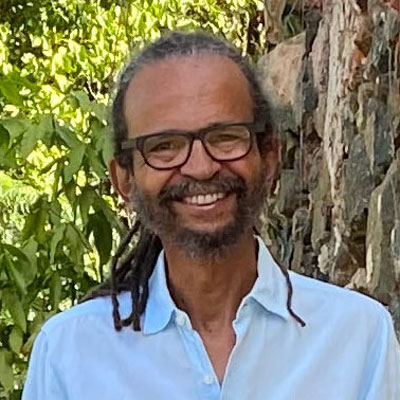
Dr. Kim Waddell
Co-Investigador Principal
Universidad de las Islas Virgenes
CCAN Focus
Investigación y Academia
Description
Kim Waddell es el líder del proyecto para la próxima Actualización del Plan de Mitigación de Riesgos y Resiliencia de las Islas Vírgenes de EE. UU., con el apoyo de FEMA y la Agencia de Manejo de Emergencias de las Islas Vírgenes (VITEMA). También es el Investigador Principal y Director del Programa Establecido para Estimular la Investigación Competitiva de las Islas Vírgenes (VI-EPSCoR), un programa de desarrollo de capacidad de investigación apoyado por la National Science Foundation y con sede en la Universidad de las Islas Vírgenes. Este programa se enfoca en los impactos terrestres en la salud y función de los ecosistemas marinos en tiempos de Cambio Climático, así como en investigación educativa STEM y oportunidades para estudiantes minoritarios subrepresentados desde el K-12 hasta los grados de maestría. Antes de eso, Kim fue Oficial Superior de Programa en las Academias Nacionales de Ciencias, Ingeniería y Medicina. El Dr. Waddell se desempeñó como director de estudios para más de una docena de informes de las Academias Nacionales sobre agricultura, pesca y otros temas de gestión de recursos naturales. Kim obtuvo su doctorado en Ciencias Biológicas de la Universidad de Carolina del Sur y su licenciatura en Estudios Ambientales de la Universidad de California, Santa Cruz. Para divertirse, a Kim le gusta hacer caminatas en playas remotas de islas y disfruta pescar. ¡También le encanta la buena comida callejera y la música soca!
Contact: kim.waddell@uvi.edu
Core Team Members
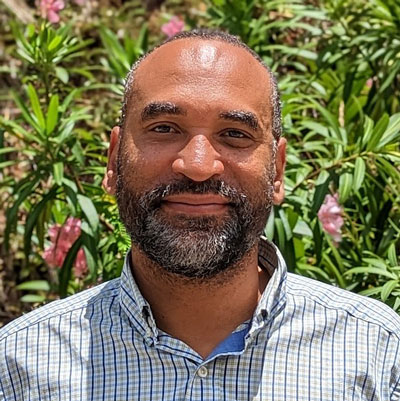
Dr. Gregory Guannel
Co-Investigador Principal
Universidad de las Islas Virgenes
CCAN Focus
Investigación y Academia
Description
El Dr. Guannel es el Director del Centro de Tecnología Verde del Caribe en la Universidad de las Islas Vírgenes, cuya misión es mejorar la resiliencia, adaptación al clima y desarrollo sostenible de las Islas Vírgenes de EE. UU. La mayor parte del trabajo del centro se enfoca en temas relacionados con la resiliencia de infraestructuras civiles y costeras, tecnología y políticas de energía renovable, y gestión de recursos hídricos. El Dr. Guannel tiene una Maestría en Obras Públicas de la Ecole Supérieure des Travaux Public (París, Francia), una Maestría en Ingeniería Costera y Oceánica de la Universidad de Texas A&M, y un Doctorado en Ingeniería Civil de la Universidad Estatal de Oregón.
Contact: gregory.guannel@uvi.edu
Core Team Members
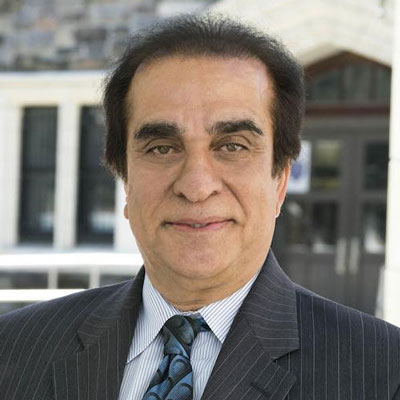
Dr. Reza Khanbilvardi
Co-Investigador Principal
Colegio de la Ciudad de Nueva York/Universidad de la Ciudad de Nueva York
CCAN Focus
Investigación y Academia
Description
Reza Khanbilvardi, un Ingeniero Profesional con licencia en el estado de Nueva York, es el Profesor NOAA de Ingeniería Civil y el Director Ejecutivo fundador del Instituto de Sistemas Terrestres de Teledetección CUNY (Instituto CUNY-CREST) en la Universidad de la Ciudad de Nueva York desde 2010. También fue el Director fundador de un Centro de Ciencias Cooperativas de NOAA, NOAA-CREST (2001-2016) y NOAA CESSRST (2016-2021). Es Editor en Jefe del International Journal for Water (Publicaciones InderScience) desde 2011. Ha trabajado extensamente con agencias como NOAA, NASA, NSF, USAID, ONU, USDA y CRDF. El Dr. Khanbilvardi obtuvo su licenciatura en Ingeniería Civil, luego sus títulos de maestría (Ingeniería Ambiental) y doctorado (Ingeniería Civil/Recursos Hídricos) y un premio de Post-Doctorado (Recursos Hídricos) de la Universidad Estatal de Pensilvania en 1980, 1983 y 1984 respectivamente.
Sus intereses de investigación incluyen Aplicaciones de Teledetección Basadas en Satélites en Hidroclima, Hidrología y Procesos Terrestres, Impactos del Clima en los Recursos Hídricos y Adaptación al Clima, Hidráulica e Hidrología de Aguas Superficiales, Monitoreo y Mapeo de Inundaciones Urbanas Repentinas; y Estudios de Equivalente de Agua Nieve. Ha escrito o co-escrito más de 210 publicaciones con un extenso historial de presentaciones en conferencias. El Dr. Khanbilvardi ha servido como investigador principal y co-investigador en numerosas subvenciones de investigación que totalizan más de $98 millones patrocinadas por diversas agencias como NOAA, NASA, NSF, USAID, Departamento de Educación de EE. UU., Departamento de Protección Ambiental de la Ciudad de Nueva York, Autoridad de Investigación y Desarrollo Energético del Estado de Nueva York y otros.
Contact: khanbilvardi@ccny.cuny.edu
Core Team Members

Dr. Eric Harmsen
Co-Investigador Principal
Universidad de Puerto Rico, Recinto de Mayagüez
CCAN Focus
Investigación y Academia
Description
Soy profesor en el Departamento de Ingeniería Agrícola y de Biosistemas de la Universidad de Puerto Rico en Mayagüez. Imparto cursos en hidrología agrícola, agroclimatología e irrigación. Mis intereses de investigación incluyen la medición y modelado de todos los componentes del ciclo hidrológico, teledetección del balance hídrico y energético en los trópicos, y agroclimatología.
Contact: eric.harmsen@upr.edu
Core Team Members
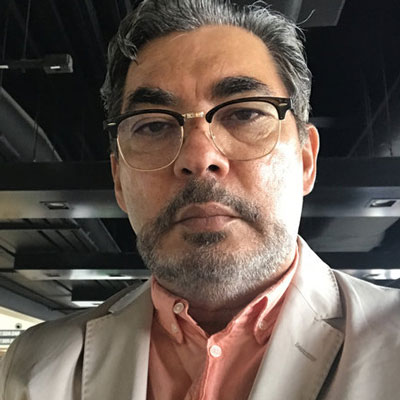
Dr. José Seguinot
Co-Investigador Principal
Universidad de Puerto Rico, Recinto de Ciencias Médicas, Escuela Graduada de Salud Pública.
CCAN Focus
Investigación y Academia
Description
El Dr. José Seguinot Barbosa es un profesor retirado del Departamento de Salud Ambiental en la Universidad de Puerto Rico - Recinto de Ciencias Médicas. El Dr. Seguinot obtuvo una licenciatura en Geografía de la Universidad de Puerto Rico - Río Piedras en 1975, una Maestría en Planificación de Recursos Naturales de la Universidad Nacional de México en 1978 y un doctorado en Geografía y Geología de la Escuela de Geociencias de la Universidad Estatal de Luisiana en 1983. Obtuvo un título de Juris Doctor (ley) de la Universidad de Puerto Rico en 1990. Ha realizado estudios postdoctorales en Cambios Globales en la Universidad Laval (Canadá) y en Sistemas de Información Geográfica (GIS) en la Universidad de Alcalá en España. Desde enero de 1981 hasta julio de 1990, el Dr. Seguinot se unió al Departamento de Geografía en el recinto de Río Piedras de la UPR. Desde 1990 hasta la actualidad, se ha desempeñado como profesor de sistemas de información geográfica, derecho ambiental y geología ambiental en el Departamento de Salud Ambiental en el Recinto de Ciencias Médicas de la UPR.
Ha sido director del Departamento de Geografía, del Programa de Intercambio Atlantea-Caribe y actualmente es el presidente del Departamento de Salud Ambiental. En 2008 recibió una Beca Fulbright para realizar investigaciones en España sobre cambio climático, salud y desarrollo sostenible. Ha sido asesor legal y experto en varios casos legales ambientales y ha dirigido más de 50 subvenciones de investigación relacionadas con la contaminación del agua y costera, deforestación de bosques tropicales, ecología humana, gestión ambiental, derecho, evaluación de riesgos, cambios globales, salud ambiental, cultura y medio ambiente, entre otros. Fue coautor de dos libros de educación secundaria titulados: Puerto Rico y las Américas (1989) e Historia de Puerto Rico: sitios de la memoria (1994). También fue editor y coautor de un libro universitario titulado: Globalization in the Americas: A Geographical Approach (1997). Fue el único autor de estos libros universitarios: 1. Geografía, ecología y derecho de Puerto Rico y el Caribe (1994) 2. San Juan, Puerto Rico: La Ciudad al Margen de la Bahía (1998) 3. ¿Quién Defiende la Naturaleza? Leyes Ambientales de Puerto Rico y del Caribe (1999) 4. Derecho Ambiental (2000) 5. Geonatura: Aplicaciones de los SIG en la Ciencias Ambientales y de la Salud (2001) y Geocaribe: Ensayos sobre Medio ambiente, cultura y salud (2005). Recientemente acaba de terminar un nuevo libro titulado: Impacto Ambiental en las Islas de Puerto Rico. Ha publicado en revistas de revisión por pares más de cien artículos relacionados con ciencias ambientales y educación, cambios globales y derecho.
El Dr. Seguinot mantiene un programa de investigación activo en SIG, geología ambiental y cambios climáticos globales. Específicamente está aplicando SIG a cambios ambientales locales, regionales y globales, corredores ecológicos y evaluación de riesgos geológicos. Su técnica de laboratorio estudia los procesos de cambios globales como el aumento del nivel del mar, la distribución de enfermedades humanas y el impacto humano en el medio ambiente. Ha sido profesor visitante en las siguientes universidades: Universidad de Cádiz, Universidad Nacional de Costa Rica, Universidad Laval de Quebec, Universidad Complutense de Madrid, Universidad de Alcalá de Henares, Universidad de Sao Paulo, Universidad de Buenos Aires, Universidad de la Habana, Universidad de Chicago, Universidad de Costa Rica, Universidad Autónoma de Madrid, Universidad de Salamanca, Universidad de Quintana Roo, Universidad de Aveiro, Universidad Nacional de México y Universidad de Catania.
Contact: jose.seguinot@upr.edu
Senior Personnel
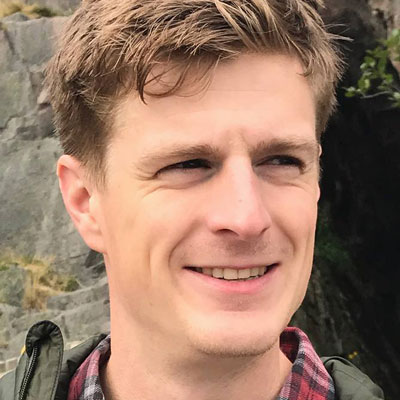
John-Michael Davis
Profesor Asistente y Co-Director, Centro de Puerto Rico de WPI
Instituto Politécnico de Worcester
Contact: jdavis4@wpi.edu
Senior Personnel
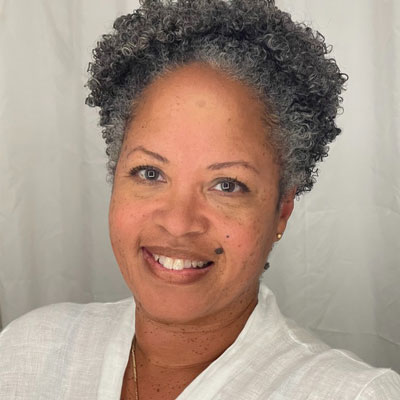
Jeannine Francis-Brown
Alcance Comunitario en las Islas Vírgenes de EE. UU.
Universidad de las Islas Virgenes
Contact: jeannine.francisbrown@uvi.edu
Senior Personnel
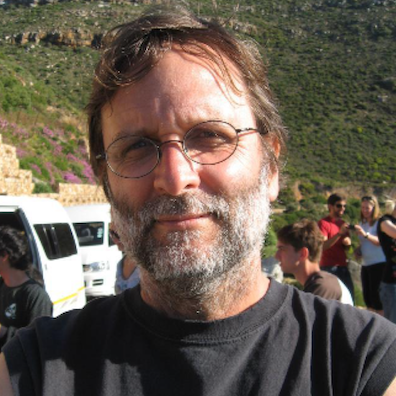
Scott Jiusto
Profesor Emérito y Co-Director, Centro de Puerto Rico de WPI
Instituto Politécnico de Worcester
Contact: sjiusto@wpi.edu
Senior Personnel

Michelle Mulkern
Directora Asociada, Servicios Preconcesionales
Instituto Politécnico de Worcester
Contact: memulkern@wpi.edu
Senior Personnel
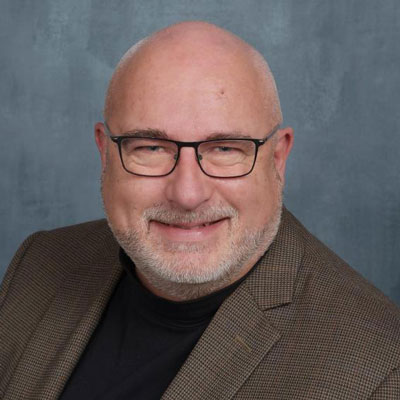
Michael Piasecki
Profesor Asociado, Ingeniería Civil
Universidad de la Ciudad de Nueva York
Contact: mpiasecki@ccny.cuny.edu
Senior Personnel

Sara Strauss
Profesora de Antropología
Instituto Politécnico de Worcester
Contact: sstrauss@wpi.edu
Collaborators

Wanda Crespo
Especialista 1 Programa de Adaptación al Clima
NOAA- Alianzas de Adaptación al Clima en Puerto Rico
CCAN Focus
Agencia Gubernamental Federal
Description
Especialista en Adaptación al Clima para Puerto Rico en apoyo al Programa de Alianzas de Adaptación al Clima de NOAA, contratista bajo Lynker. Es un Planificador Ambiental y Urbano con más de 20 años de experiencia gestionando proyectos complejos que requieren coordinación intersectorial. Se desempeñó como Director de la División de Planificación Ambiental, Urbana y Regional en una de las principales firmas de planificación de Puerto Rico, brindando servicios de consultoría a agencias federales y del Commonwealth, municipios, ONG y organizaciones comunitarias. Tiene una amplia experiencia con técnicas de investigación multimétodo y enfoques participativos. Ha impartido clases en la Escuela de Graduados de Planificación de la Universidad de Puerto Rico. Fue autor del Informe del Estado del Clima de Puerto Rico de 2022, y de los capítulos del Caribe de los Cuarto y Quinto Informes Nacionales de Clima. Posee una licenciatura en Ciencias Ambientales y una Maestría en Planificación de la Universidad de Puerto Rico.
Contact: wcrespo@lynker.com
Post Doctoral Fellows

Dr. Sarah Molinari
Post Doctoral Fellow
Worcester Polytechnic Institute
Contact: smolinari@wpi.edu
Post Doctoral Fellows

Dr. Mónica V. Sánchez Sepúlveda
Becaria Post Doctoral
Universidad de Puerto Rico, Recinto de Ciencias Médicas, Escuela Graduada de Salud Pública
Contact: sanchezmonicav@gmail.com
Research Assistants and Graduate Students
Varun Baht
Asistente de Investigación,
Instituto Politécnico de Worcester
Frederick Boakye Oppong
Asistente de Investigación,
Universidad de Albany
Ryan Brenner
Asistente de Investigación,
Universidad de Nueva York
Laura T. Cabrera-Rivera
Asistente de Investigación Doctoral,
Universidad de Puerto Rico, Recinto de Ciencias Médicas, Departamento de Salud Ambiental
Stephan Cortes
Asistente de Investigación,
Sistemas Urbanos, Universidad de Nueva York
Juan E. Florez Coronel
Asistente de Investigación,
Universidad de Puerto Rico, Recinto de Mayagüez
Sol Giesso
Asistente de Investigación,
Instituto Politécnico de Worcester
Keneshia Hibbert
Asistente de Investigación,
Universidad de la Ciudad de Nueva York
Jhon Ibsen-Chaguendo
Asistente de Investigación,
Colegio de la Ciudad de Nueva York
Gabriela Martinez Serrano
Asistente de Investigación,
Universidad de Puerto Rico, Recinto de Ciencias Médicas, Escuela Graduada de Salud Pública.
Ana Mejia Manrique
Asistente de Investigación,
Universidad de la Ciudad de Nueva York
Said Mejia-Manrique
Asistente de Investigación,
Universidad de la Ciudad de Nueva York
Joshua A. Reyes Cintron
Asistente de Investigación,
Universidad de Puerto Rico, Recinto de Ciencias Médicas, Escuela Graduada de Salud Pública
Vanelia Ruiz Perez
a
Universidad de Puerto Rico, Recinto de Ciencias Médicas, Escuela Graduada de Salud Pública.
Francis Russell
Asistente de Investigación y Enseñanza,
Universidad de Texas en Austin
Keivan Tavakoli
Asistente de Investigación,
Universidad de Texas en Austin
Solange Uwera
Asistente de Investigación,
Instituto Politécnico de Worcester
Harold Valle Reyes
Asistente de Investigación,
Universidad de Puerto Rico, Recinto de Mayagüez
